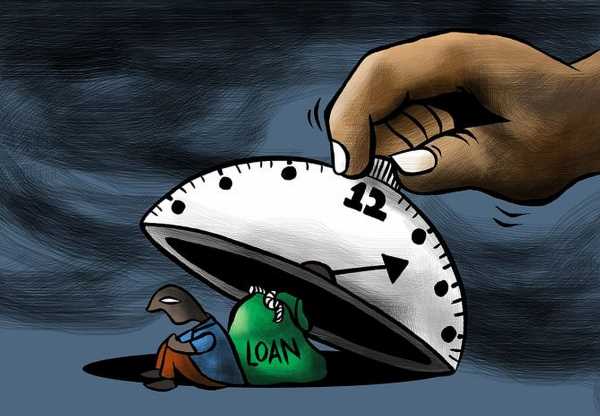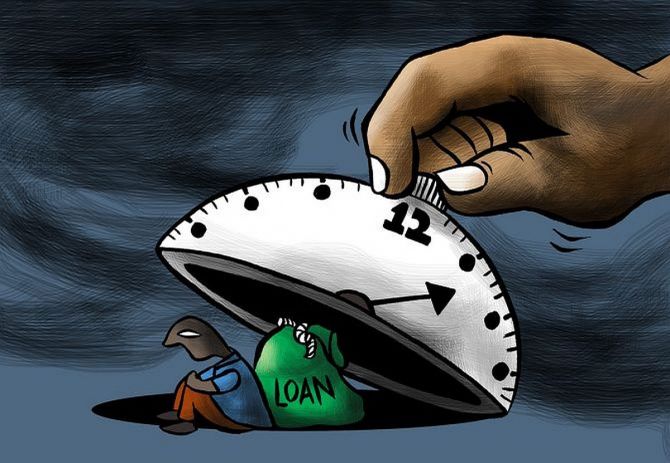RBI rule on unsecured loans to hit lenders’ capital, loan growth: Analysts
The Reserve Bank of India’s (RBI’s) latest order on unsecured loans is set to hit the banking sector’s growth in the near-term, cautioned analysts, as they see banks slowing down on aggressive retail lending.
Besides, cost of funds for non-banking finance companies (NBFC) is expected to inch up as banks will pass on higher capital charge to NBFCs.
“We believe the fallout of the RBI action will be mainly on growth, given the rising dependence on unsecured retail loans and lending to NBFCs for growth.
“Our analysis suggests that a 100bps cut in growth across FY24-26 could impact return on asset (RoA)/ return on equity (RoE) by 3-10bps/20-100bps,” said Emkay Global Financial Services.
On Thursday, the RBI increased the risk weight for unsecured loans like personal loans and those on the credit card from 100 per cent to 125 per cent.
The risk weight for bank loans to higher-rated NBFCs, too, was increased by 25 percentage points.
The new norms are applicable with immediate effect, and are for new as well as outstanding loans.
As the increase in risk weighting will mean banks have to set aside more capital while extending such loans, the lenders in turn could increase the lending rates on such products, analysts said.
On the bourses, shares of RBL Bank slipped 7.7 per cent, while those of SBI Cards and Payment Services plunged 5 per cent.
AB Capital Money, meanwhile, dropped 5.6 per cent, Ujjivan Financial Services (4.8 per cent), L&T Finance Holdings (5.7 per cent), IDFC First Bank (3.5 per cent), IDBI Bank (4.3 per cent), Axis Bank (3.2 per cent), ICICI Bank (1.6 per cent), Bajaj Finance (1.9 per cent), and State Bank of India (3.7 per cent).
The Nifty PSU Bank index ended 2.4 per cent lower, followed by the Nifty Bank, and Private Bank indices (1.3 per cent each), and the Nifty 50 index (0.17 per cent).
Who will be the worst hit?
Unsecured loans have grown at a CAGR of 18.1 per cent over March, 2020 to September, 2023, while loans to NBFCs have grown at a CAGR of 12 per cent.
On a year-on-year basis, unsecured retail loans have been growing by 20-60 per cent across major lenders.
That apart, bank lending to NBFCs also has increased significantly since FY20 with the share of banks in total borrowings moving up to 36 per cent in FY23 from 30.6 per cent in FY20.
With new guidelines in place, analysts believe banks with relatively low capital or with high exposures to unsecured loans/NBFCs would be impacted more.
Those at Citi, meanwhile, see a 75-bps common equity tier-1 (CET-1) erosion for RBL Bank; 50 bps for HDFC Bank; 30-42 bps hit for Kotak Mahindra, AU Small Finance, Axis, and ICICI Bank; 27 bps for SBI; and up to 20 bps for IndusInd, and Federal Bank.
Further, Emkay Global estimates 77 bps hit for IDFC First Bank; 32 bps for City Union Bank; 82 bps for Canara Bank/SBI; 55 bps for Bank of Baroda; 59 bps for IndusInd Bank; and 127 bps for Ujjivan SFB.
“Within NBFCs, impact on Tier I will be the highest for SBI Card at 384 bps, followed by Poonawala at 383 bps, and Bajaj Finance/Aditya Birla Finance at 177 bps/162 bps.
“We believe that the RBI action could deplete Tier I below optimal levels for select players like SBI, YES Bank, RBL, IDFC Bank, Axis Bank, SBIC, and AB Capital and, thus, compel them to shore-up capital buffer,” the brokerage said.
That said, analysts believe vehicle financiers, housing finance companies, gold loan financiers and NBFC-MFIs are relatively well-placed.
JM Financial prefers Shriram Finance, Home First Finance, and Fusion Micro Finance among the lot.
Source: Read Full Article


